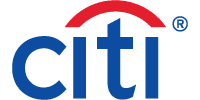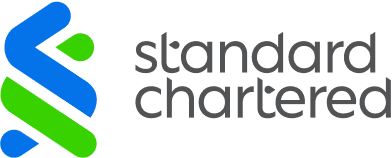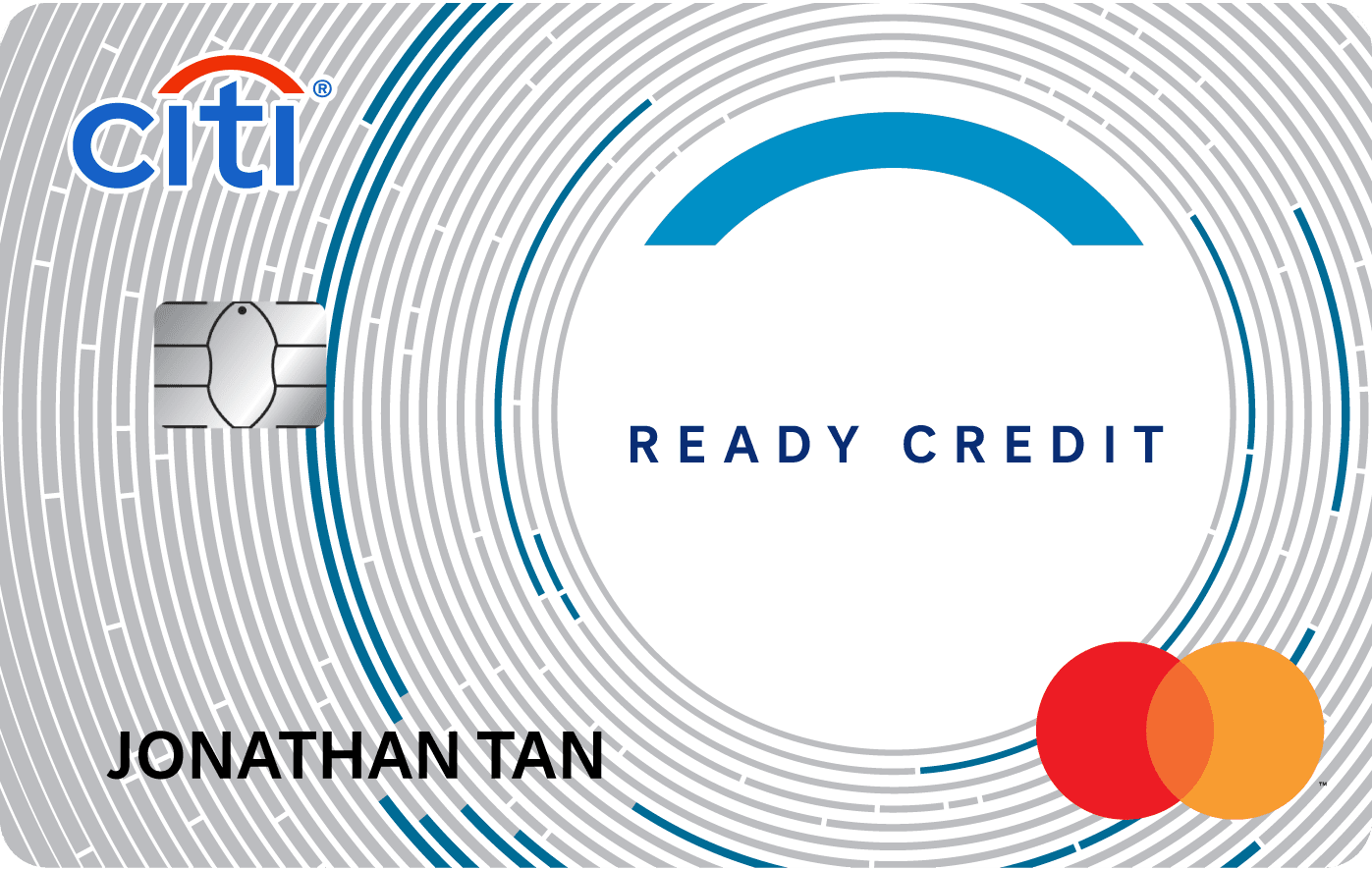Best Personal Loans For Foreigners In Singapore 2026
Updated: 15 Jan 2026
1. Click “Apply Now” on UOB's website
2. Fill out the application and upload all necessary documents
3. Wait for an offer from UOB
Note: Get instant approval and cash disbursed into your UOB accounts for applications submitted between 8am and 9pm
- Enjoy interest rates as low as 1.38% p.a (EIR from 2.65% p.a.)
- No processing fees
- Get instant approval and cash disbursed into your UOB accounts for applications submitted between 8am and 9pm
- Min. loan amount of S$1,000
- Min. income for Singaporeans/PRs: S$30,000 p.a.
- Read our full review of the UOB Personal Loan
- Foreigners are not eligible for UOB Personal Loan
- Cancellation fee: S$150 or 3% of outstanding approved loan amount, whichever is higher
- NRIC (Front & Back)
- For salaried employees: Last 3 months’ computerised payslip; or Latest Income Tax Notice of Assessment with latest 1 month’s computerised payslip; or latest 6 months’ CPF statement (for Singaporeans or PRs)
- For self-employed persons: Last 2 years’ Income Tax Notice of Assessment
The information displayed above is for reference only. The actual rates offered to you will be based on your credit score and is subject to the provider’s approval.

Citi Quick Cash - Existing Loan Customers
1. Head to Citibank's website and click “Apply Now” under Existing Customers
2. Fill out the loan application
3. Get instant processing within 60 seconds upon verification of loan application
- Instant processing within 60 seconds upon verification of loan application
- No processing fees
- Borrow up to 4x your monthly salary at S$0 processing fee, for a min. loan amount of S$1,000
- Convert unutilised credit limit to cash deposited in your Citi deposits account in under a minute
- Min. income for Singaporeans/PRs: S$30,000 p.a. Min. income for foreigners: S$42,000 p.a.
- Read our full review of the Citibank Quick Cash Loan
- Instant loan disbursement available only for Citi deposit accounts displayed in the 'funds disbursement option' field
- Cancellation fee: 3% of outstanding unbilled principal amount or S$100, whichever is higher
- If min. payment amount is overdue for two consecutive months, the loan will be terminated and the total outstanding amount will be billed
1. NRIC (Front & Back)
2. Salaried employees: Past 12 months CPF statement (Singaporean/PR)
3. Income Tax Notice of Assessment and latest original computerised payslip
4. Self-employed individuals: Latest Income Tax Notice of Assessment and latest original computerised payslip
The information displayed above is for reference only. The actual rates offered to you will be based on your credit score and is subject to the provider’s approval.
1. Go to HSBC's website and click “Apply Now” under Personal Loans
2. Fill out an application and submit the required documents
3. Wait for approval from HSBC
- One of the lowest interest rates from 1.80% p.a (EIR 3.50% p.a) for those earning min. S$30,000 annually.
- No processing fees
- Instant disbursement upon approval to an HSBC bank account
- Get a 1-minute in-principle approval on your HSBC Personal Loan
- Max. loan amount equal to 90/95% of approved credit limit at time of application
- Min. loan amount of S$1,000
- Option to borrow at a slightly longer loan tenure of 7 years
- Early repayment fee: 2.5% of the repayment amount
- Overdue interest: 2.5% + prevailing interest on overdue amount
- Late payment fee: S$75 for each monthly repayment that is not received in full by the monthly due date
- High base minimum annual income requirement of S$65,000 (w.e.f. 1 October 2025) Learn more.
1. NRIC (Front & Back)
2. For salaried employees: Last 3 months’ computerised payslip, or latest Income Tax Notice of Assessment with latest 1 month’s computerised payslip, or latest 6 months’ CPF statement (for Singaporeans or PRs)
3. For self-employed persons: Last 2 years’ Income Tax Notice of Assessment
The information displayed above is for reference only. The actual rates offered to you will be based on your credit score and is subject to the provider’s approval.
1. Go to DBS site and click “Apply now” under Personal Loans
2. Log in using your card or ibanking details
3. Fill out and submit all required documents
4. An SMS will confirm if your loan has been approved
5. An approval letter will be mailed to you as well
Note: Applications can be done also via Singpass Myinfo on DBS' website
- Enjoy personalised rates from as low as 1.48% p.a. (EIR 2.84% p.a.) with full processing fee rebate
- Borrow up to 4x your monthly salary if you earn less than S$120,000 annually, or up to 10x if you earn more than S$120,000 annually
- Min. loan amount of S$500
- Tenure: 6 months to 5 years
- Min. income for Singaporeans/PRs: S$20,000 p.a.
- Apply via SingSaver and get your loan approved and disbursed instantly into your DBS/POSB account
- Processing fee: From 1% of the approved loan amount
- Early repayment fee: S$250
- Late payment fee: S$100 for personal loan on DBS/POSB credit card, S$120 for personal loan on DBS/POSB Cashline
1. NRIC (Front & Back)
2. CPF contribution history statement (latest 12 months)
3. Latest 1 year Income Tax Notice of Assessment (NOA)
4. Latest computerised payslip or salary crediting into a DBS/POSB account
The information displayed above is for reference only. The actual rates offered to you will be based on your credit score and is subject to the provider’s approval.
1. Download an application form on POSB's website
2. Fill it out and apply online or in-person at one of the bank's branches
3. Wait for an offer from POSB
- Enjoy personalised rates from as low as 1.48% p.a. (EIR 2.84% p.a.) with full processing fee rebate
- Borrow up to 4x your monthly salary if you earn less than S$120,000 annually, or up to 10x if you earn more than S$120,000 annually
- Min. loan amount of S$500
- Tenure: 6 months to 5 years
- Min. income for Singaporeans/PRs: S$20,000 p.a.
- Apply via SingSaver and get your loan approved and disbursed instantly into your DBS/POSB account
- Processing fee: From 1% of the approved loan amount
- Early repayment fee: S$250
- Late payment fee: S$100 for personal loan on DBS/POSB credit card, S$120 for personal loan on DBS/POSB Cashline
1. NRIC (Front & Back)
2. Salaried employees: Latest 9 months’ CPF contribution history statement OR latest 1 year Income Tax Notice of Assessment or latest computerised payslip or salary crediting into DBS/POSB account
3. Self-employed individuals: Latest 1 year Income Tax Notice of Assessment
The information displayed above is for reference only. The actual rates offered to you will be based on your credit score and is subject to the provider’s approval.
1. Head to Citibank's website and apply via SingPass MyInfo or manually filling in a form
2. Submit the required documents
3. Wait for approval from Citibank
- Flexible line of credit up to 4X your monthly income or up to 8X your monthly income if your annual income is S$120,000 and above. (Subject to Citibank's approval)
- Enjoy an interest rate from as low as 3.45% p.a. (EIR 6.50% p.a.) by converting your available credit limit to a loan with Citi Quick Cash on Ready Credit. Terms and Conditions apply. EIR 6.50% p.a. is applicable to new Citibank Ready Credit customers only.
- No processing fees
- Minimum loan of S$1,000
- Tenure: 1 year to 5 years
- Annual fee: S$120 (First year free) on Citibank Ready Credit
- Late Payment charge: S$120*
- Overlimit fee: S$40*
1. A copy of your NRIC (front & back) or work permit (with minimum 6 months validity)
2. A copy of your utility bill, telephone bill, or bank statement with your name and address
3. Income Tax Notice of Assessment
4. Latest original computerised payslip
The information displayed above is for reference only. The actual rates offered to you will be based on your credit score and is subject to the provider's approval.
Citi Quick Cash - Existing Loan Customers & Ready Credit Account Users
Loan details
-
Citizenship status: Singapore Citizens, PRs & Foreigners (with valid work pass)
-
Minimum annual income: S$42,000 (Foreigners only, S$30,000 for Singaporeans/PRs)
-
Minimum loan tenure: 1 year (up to 5 years)
-
Processing fee: None
SingSaver’s take
Citi Quick Cash works best if you’re already a Citibank credit card or loan customer and need funds fast. The biggest draw is its convenience — you can convert your available credit limit into cash almost instantly, with no processing fee. Just keep in mind that your loan quantum depends on your existing limit, so it’s great for short-term needs but less ideal if you’re looking for a larger lump sum.
This programme is also designed for those who already hold a Citibank Ready Credit account. The appeal here is flexibility: you can draw cash from your line of credit and convert it into fixed monthly instalments, giving you repayment certainty. Since there’s no processing fee, it’s a smart way to manage short-term borrowing — provided you’re comfortable with Ready Credit’s overall interest structure.
Pros
Instant processing within 60 seconds upon verification of loan application
No processing fees
Borrow up to 4x your monthly salary at S$0 processing fee, for a min. loan amount of S$1,000
Convert unutilised credit limit to cash deposited in your Citi deposits account in under a minute
Min. income for Singaporeans/PRs: S$30,000 p.a. Min. income for foreigners: S$42,000 p.a.
Cons
Instant loan disbursement available only for Citi deposit accounts displayed in the 'funds disbursement option' field
Cancellation fee: 3% of outstanding unbilled principal amount or S$100, whichever is higher
If min. payment amount is overdue for two consecutive months, the loan will be terminated and the total outstanding amount will be billed
HSBC Personal Loan
Loan details
-
Citizenship status: Singapore Citizens, PRs & Foreigners (with valid Employment pass)
-
Minimum annual income: S$60,000 (Foreigners only, S$30,000 for salaried Singaporeans/PRs)
-
Minimum loan tenure: 1 year (up to 7 years)
-
Processing fee: None
SingSaver’s take
HSBC stands out for its longer tenure — up to 7 years — which means smaller monthly instalments if you prefer to spread repayments out. It’s also a good pick for foreigners, since eligibility extends to those with valid passes. With competitive rates and no processing fee, it’s one of the more cost-efficient options if you’re eligible.
Pros
One of the lowest interest rates from 1.80% p.a (EIR 3.50% p.a) for those earning min. S$30,000 annually
No processing fees
Instant disbursement upon approval to an HSBC bank account
Get a 1-minute in-principle approval on your HSBC Personal Loan
Max. loan amount equal to 90/95% of approved credit limit at time of application
Min. loan amount of S$1,000
Option to borrow at a slightly longer loan tenure of 7 years
Cons
Early repayment fee: 2.5% of the repayment amount
Overdue interest: 2.5% + prevailing interest on overdue amount
Late payment fee: S$75 for each monthly repayment that is not received in full by the monthly due date
Standard Chartered CashOne Personal Loan
Loan details
-
Citizenship status: Singapore Citizens, PRs & Foreigners (with valid Employment pass)
-
Minimum annual income: S$90,000 (Foreigners only, S$30,000 for Singaporeans/PRs)
-
Minimum loan tenure: 1 year (up to 5 years)
-
Processing fee: None
SingSaver’s take
CashOne is one of the most competitive personal loans in Singapore, with low headline rates and quick approval. There’s no processing fee, and you can borrow up to S$250,000 with tenures of up to 5 years. The catch? Foreigners face a steep income requirement (around S$90,000 annually), and all borrowers pay a S$199 first-year annual fee. Still, if you qualify, it’s a strong option for affordable, flexible financing.
Pros
One of the lowest advertised interest rates (from 1.60% p.a., EIR from ~3.07%)
Fast approval and cash disbursement, often within minutes
No processing fee, unlike many other banks
Flexible loan quantum — from S$1,000 up to S$250,000
Wide tenure range of 1 to 5 years to suit different repayment needs
Annual fee waiver after Year 1 if instalments are paid on time
Cons
First-year annual fee of S$199 (deducted from loan upfront)
Foreigners face high income requirement (around S$90,000 annually)
Hefty penalty fees for late payment (S$100) or early repayment (3% of outstanding, min. S$150)
Short-term borrowers may find the annual fee cancels out low interest savings
Loan approval subject to creditworthiness and may not match advertised rates
What are foreigner loans?
Foreigner loans are personal loans tailored for non-citizens working or living in Singapore. These are designed to help expats and work pass holders access extra funds for various needs, whether it’s settling rental deposits, managing unexpected expenses, or sending money home.
The way they work is fairly straightforward. Once your application is approved, the lender disburses a lump sum to your bank account. You’ll then repay this amount over time through fixed monthly instalments, which include both the principal and interest.
Unlike personal loans for Singaporeans or PRs, interest rates for foreigner loans tend to be slightly higher. This is because lenders factor in the additional risk tied to work pass validity and the potential for relocation.
Personal loan eligibility requirements for foreigners
Getting a personal loan in Singapore is generally more challenging for foreigners than for Singaporeans and PRs. While locals may qualify with annual incomes starting around S$20,000 to S$30,000, foreigners are often required to earn significantly more — usually between S$42,000 and S$90,000 a year, depending on the lender.
Banks and licensed moneylenders also take a closer look at factors like employment stability, visa validity, and whether you hold a local bank account. These stricter requirements reflect the higher risk profile lenders associate with non-residents, who may have shorter work contracts or less established financial histories in Singapore.
That said, foreigners can still secure financing if they meet the income threshold and provide the right documents, such as proof of employment and valid passes. Some lenders even tailor personal loan products specifically for expats to make the process easier.
Regulations on loan quantums and interest rates
In Singapore, strict rules keep personal loans fair and transparent for borrowers. Here’s what you need to know:
-
Interest rate cap: Licensed moneylenders can charge a maximum of 4% per month on both secured and unsecured loans. Late interest is also capped at 4% per month and only applies to the overdue amount.
-
Administrative and late fees: The admin fee when your loan is approved cannot exceed 10% of the principal, while late payment fees are capped at S$60 per month.
-
Total cost limit: All charges combined — interest, late interest, admin and late fees — cannot exceed the original loan principal. For example, if you borrow S$10,000, the maximum total cost you’ll ever pay is S$10,000 on top of repaying the principal.
-
Loan quantum for foreigners:
-
Annual income below S$10,000 → maximum unsecured loan of S$500
-
Annual income between S$10,000 and S$20,000 → up to S$3,000
-
Annual income above S$20,000 → up to 6× monthly income
Frequently asked questions about personal loans for foreigners in Singapore
-
Paying rental deposits or initial housing expenses
-
Covering moving and relocation costs
-
Funding education or professional courses
-
Handling unexpected emergencies or medical bills
-
Supporting family back home or travelling
Yes, they can, though with a few more requirements than locals. Most banks and licensed financial institutions in Singapore offer personal loans for foreigners. To qualify, you’ll usually need to hold a valid work pass (EP, S Pass, or Work Permit), meet the minimum income requirement (which is often higher than for Singaporeans), and show proof of stable employment and local residence.
The loan amount you’re eligible for depends on your income and the lender’s assessment of your ability to repay. As long as you meet the criteria, taking a personal loan as a foreigner is definitely possible.
There’s no fixed rule that limits the number of personal loans you can have, whether you're a Singaporean or a foreigner. However, that doesn’t mean taking on multiple loans is a good idea.
Lenders will assess your total debt obligations before approving new loans. If you already have outstanding loans or credit card debts, you might face challenges getting approved for another loan. Even if you’re approved, juggling several loans at once can strain your finances and affect your credit score.
As a general rule, stick to what you can comfortably repay each month without sacrificing your essential expenses or emergency savings.
Many major banks and licensed lenders in Singapore offer personal loans to foreigners (i.e., OCBC, HSBC, Standard Chartered, and Citibank).
Besides those, licensed moneylenders are another option to consider for faster approval, though interest rates can be much higher. Do note that offers, eligibility, and interest rates may differ depending on your residency status and income level.
Personal loans are generally very flexible, so you can use them for just about anything, unless stated otherwise in the terms. Some common reasons include:
Just remember that while it’s tempting to borrow for lifestyle expenses like shopping or holidays, it’s smarter to reserve loans for essential or productive purposes. This helps you avoid unnecessary debt and keeps your finances on track during your stay in Singapore.
Stay ahead in everything finance
Subscribe to our newsletter and receive insightful articles, exclusive tips, and the latest financial news, delivered straight to your inbox.






